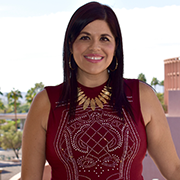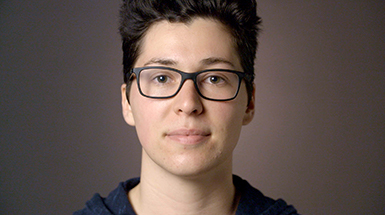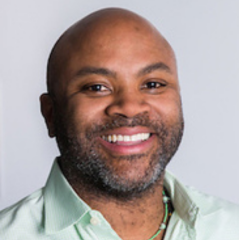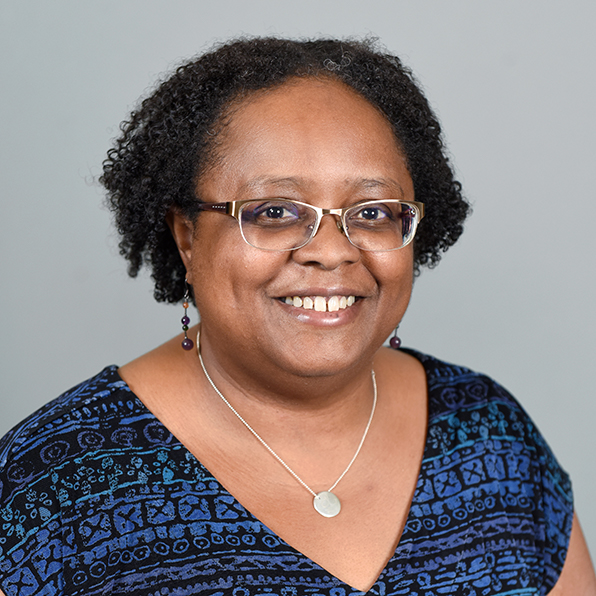About This Course
This To Be Welcoming course addresses an area that incorporates longstanding ideas and new articulations of sexuality and sexual identity, introducing concepts that may be old, new, or unfamiliar to you. We begin with key terms and unpacking the LGBTQIA acronym, followed by a video module featuring faculty experts answering commonly asked questions. Next, we provide context by looking at the history of LGBTQIA+ activism, health disparities, and biases particularly affecting trans communities. We conclude with points for starting your own discussions on sexuality bias and considering appropriate responses.
Learners who complete this course will earn a digital certificate of completion.
Meet Your Instructors
Dr. Jessica Solyom
Associate Research Professor
School of Social Transformation
Arizona State University
Jessica Solyom, Ph.D., received her doctorate in Justice and Social Inquiry from Arizona State University. She has worked in research, program development, and program evaluation for postsecondary institutions in promoting diversity in curriculum, pedagogy, and classroom management for over 10 years. Her research focuses on diversity, belonging, and justice. Her scholarly publications have explored the justice-related struggles of historically underrepresented students including explorations of race and gender in student leadership, persistence for students of color in predominantly white postsecondary settings, and education rights activism among Indigenous college students. She is currently an Associate Research Professor and teaches courses on Research and Inquiry, Critical Race Theory, and Indigenous Knowledge Systems. Dr. Solyom serves as a mentor at the Center for Indian Education (ASU) in preparing and training rising students of color as community embedded researchers and servant-leaders.
Nicholas Bustamante
J.D./Ph.D. Student
Sandra Day O’Connor College of Law
School of Social Transformation
Nicholas is a current joint law and doctoral student in Justice and Social Inquiry at Arizona State University. He has worked in research focused on the school to prison pipeline in Arizona for Native, Latino, and African American Students. In 2017-2018 he co-developed a critical legal studies program for first generation students interested in a legal career. Scholarly publications have focused on critical race theory, education, ethnic studies and Indigeneity. His doctoral research focuses on surveillance technologies and privacy rights for communities in the southwestern borderlands. Nicholas also volunteers at local immigration initiatives.
Video Contributors
Dr. Marlon Bailey
Associate Professor of Women and Gender Studies
School of Social Transformation
Arizona State University
Marlon M. Bailey is Associate Professor of Women and Gender Studies in the School of Social Transformation at Arizona State University. Marlon has served as the Benedict Distinguished Visiting Professor in Africana Studies at Carleton College; the Distinguished Weinberg Fellow in the Department of African American Studies at Northwestern University, and a Visiting Professor at the Center for AIDS Prevention Studies (CAPS) at the University of California, San Francisco.
Dr. Lisa M. Anderson
Associate Professor of Women & Gender Studies
School of Social Transformation
Arizona State University
Lisa Anderson is an associate professor of women and gender studies in the School of Social Transformation at Arizona State University. She received her bachelor's from Mount Hoyoke College, master's from Smith College, and doctorate in theatre history and criticism from the University of Washington. Her current research interests include the performance of gender; race, gender and sexuality in popular culture; feminist semiotics and phenomenology. Her most recent book, "Black Feminism in Contemporary Drama," was published by University of Illinois Press in 2008. She is currently working on a project with University of Nebraska press on black women, power, and representation in television. She teaches graduate and undergraduate courses on feminist theory, film, representation, and performance in WGS.





